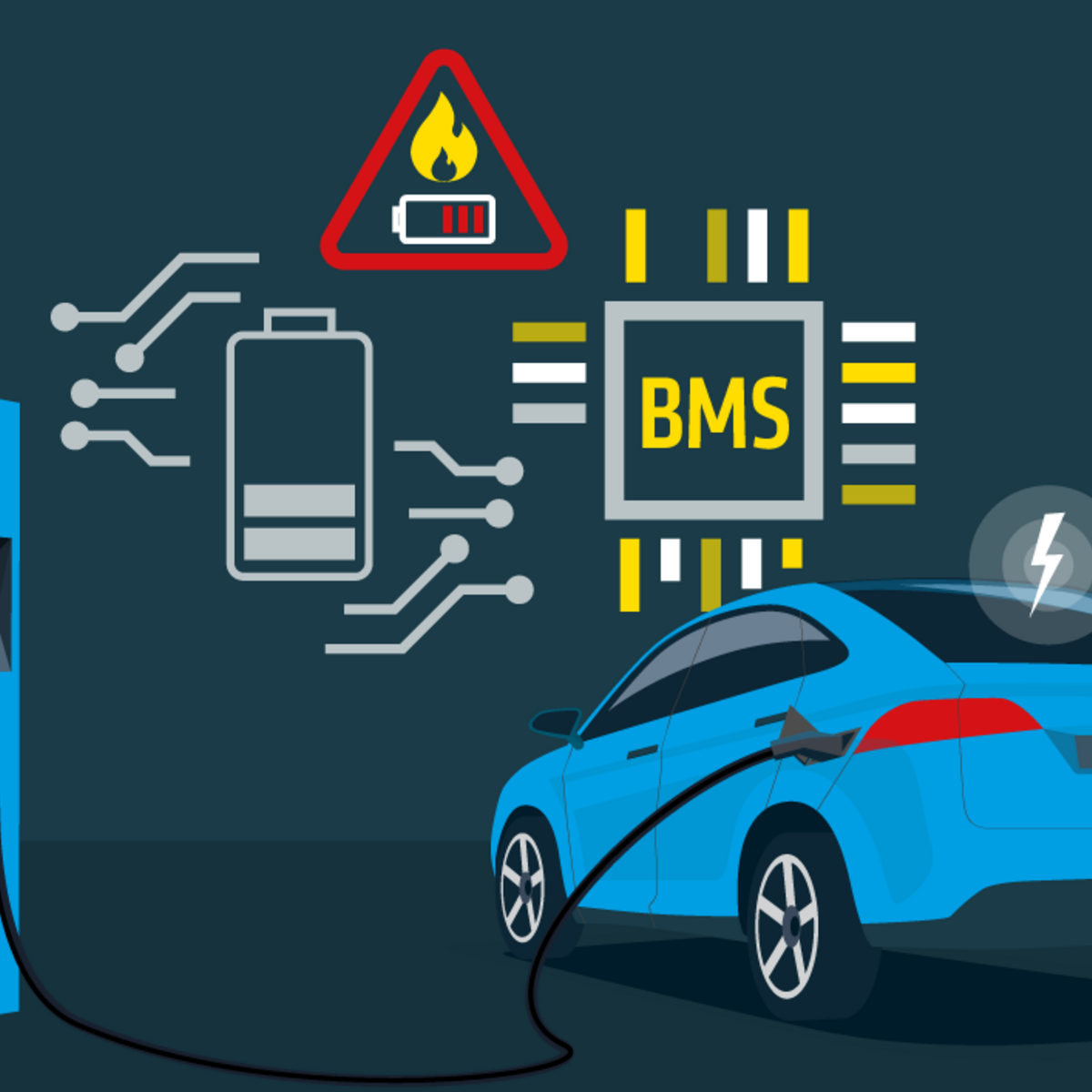New early warning system for safe lithium-ion batteries
Burning lithium batteries in cars can quickly become a danger to people and the environment. Previous warning systems only react a few minutes before a battery ignites spontaneously, the so-called thermal runaway. Together with Vitesco Technologies, a leading international provider of modern drive technologies and electrification solutions, the Federal Institute for Materials Research and Testing (BAM) is developing an early warning system that indicates possible dangerous damage to the battery weeks in advance and thus helps to protect people.
Legal regulations in the European Union stipulate that an electric car must emit a warning signal to people in the passenger compartment at least five minutes before the battery reaches thermal runaway. This is usually done via the battery management system (BMS), the electronic control unit of the battery. The BMS monitors the performance and condition of individual battery cells and cell groups.
Until now, total loss of the battery was almost inevitable
Previous warning systems register defective changes in the battery via sensors that react to suspicious changes in temperature or pressure within the battery. The disadvantage of this is that an alarm is only triggered when the battery is already severely damaged. Thermal runaway and therefore probably the complete destruction of the battery are usually unavoidable at this point.
In co-operation with Vitesco Technologies, BAM is researching a warning system that indicates critical changes in individual battery cells at an earlier stage and thus helps to prevent total loss. The innovative early warning system is based on a process that continuously measures and analyses the electrical alternating current resistance - the impedance - in the cell.
New system measures and analyses impedance
"A change in impedance can indicate various defects or undesirable conditions," explains Tim Tichter, who is conducting research at BAM as part of the project. "These can be caused by vibrations, shocks, thermal loads, material failure or even manufacturing defects, for example. Regardless of the cause, however, a change in impedance is always to be expected."
Until now, long measurement times have been necessary for meaningful impedance analyses. This prevents the implementation of such analyses in a BMS. The project team's innovative approach is to modify the measurement methodology so that impedance data can be recorded and processed much faster.
The early warning system based on this technology should initiate a service in an emergency or trigger immediate protective measures, such as switching off individual cells. This would not only prevent serious damage to lithium batteries and thus save costs, but also better protect people from the dangers of a battery fire.
All aboard for innovation
A high degree of innovation combined with sophisticated technologies define the Cluster Transport, Mobility and Logistics of the German capital region and make it into one of Europe’s leading locations for the mobility sector. The region focuses on economic and ecological solutions for logistics, aviation and digital networking, and reinforces its pioneering role in this sector.
For further information about the growth industries, economic development, business and technology support for companies, investors and scientific institutions in the Airport Region Berlin Brandenburg please contact:
Sandra Koletzki | sandra.koletzki(at)airport-region.de
(Source: Bundesanstalt für Materialforschung und -prüfung (BAM), 10|24|2023 | “New early warning system to provide better protection against burning lithium-ion batteries”)
